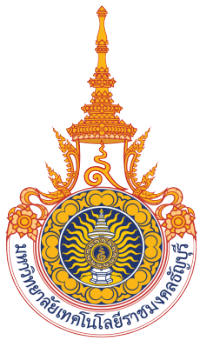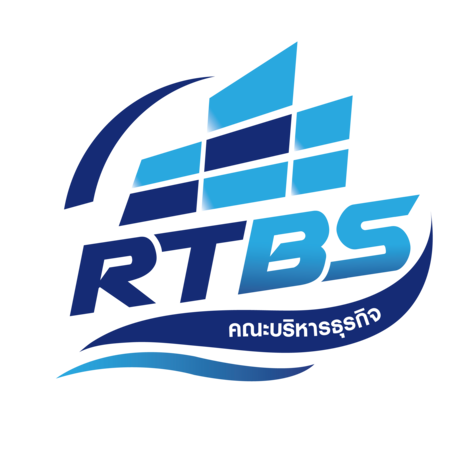การพัฒนารูปแบบภาวะผู้นำของผู้บริหารเจเนเรชันวาย ในภาครัฐสู่ความสำเร็จขององค์กร*
คำสำคัญ:
ภาวะผู้นำ, ผู้บริหาร, เจเนเรชันวาย, การบริหารภาครัฐ, การพัฒนารูปแบบบทคัดย่อ
การวิจัยครั้งนี้มีวัตถุประสงค์เพื่อ 1) ศึกษาสถานการณ์ภาวะผู้นำของผู้บริหารเจเนเรชันวาย ในภาครัฐ และ 2) พัฒนารูปแบบภาวะผู้นำของผู้บริหารเจเนเรชันวายในภาครัฐสู่ความสำเร็จขององค์กร ดำเนินการวิจัยเชิงคุณภาพโดยการสัมภาษณ์เชิงลึก ผู้บริหารในองค์กรภาครัฐ จำนวน 7 คน
ผลการวิจัย พบว่า 1) สถานการณ์ผู้บริหารเจเนเรชันวาย ประกอบด้วย 1.1) ปัญหาที่เกิดขึ้น จากการบริหารงานของผู้บริหารในเจเนเรชันวายในภาครัฐ พบว่า เกิดจากความไม่มั่นใจ เวลา และรูปแบบการปฏิบัติงานที่ใช้เทคโนโลยีที่ทันสมัย 1.2) พฤติกรรมการบริหารงานของผู้บริหารเจเนเรชันวายมีความแตกต่างกัน คือ เน้นเรื่องการทำงาน เน้นเรื่องความสัมพันธ์ และเน้นเรื่องการเปลี่ยนแปลง 2) การพัฒนารูปแบบภาวะผู้นำของผู้บริหารเจเนเรชันวายในภาครัฐสู่ความสำเร็จขององค์กร ประกอบด้วย 2.1) สร้างคุณค่าผู้นำในมิติวัตถุประสงค์ ค่านิยม หัวใจ มนุษยสัมพันธ์ และการมีวินัยในตนเองให้พัฒนาต่อเนื่อง 2.2) การสร้างทัศนคติเชิงบวกและการสร้างแรงจูงใจในการทำงาน และ 2.3) พฤติกรรมผู้บริหาร เจเนเรชันวายทั้งเรื่องบริหารจัดการทรัพยากรและเน้นการทำงานที่มีประสิทธิภาพ
เอกสารอ้างอิง
พรรษรัตน์ พรมมินทร์ และ ปรีชา วิหคโต. (สิงหาคม 2563). การพัฒนารูปแบบภาวะผู้นำของผู้บริหารสถานศึกษาในยุคดิจิทัลสังกัดสำนักงานเขตพื้นที่การศึกษามัธยมศึกษา เขต 5 จังหวัดลพบุรี. วารสารสังคมศาสตร์และมานุษยวิทยาเชิงพุทธ, 5(8), 36-53.
Ajzen, I. (1991, December). The theory of planned behavior. Organizational behavior and human decision processes, 50(2), 179-211.
Črešnar, R., & Nedelko, Z. (2020). Understanding Future Leaders: How Are Personal Values of Generations Y and Z Tailored to Leadership in Industry 4.0?. Sustainability, 12(11), 4417. doi.org/10.3390/su12114417
Demircioglu, M. A., & Chowdhury, F. (2020, March). Entrepreneurship in public organizations: the role of leadership behavior. Small Business Economics, 1-17. doi:10.1007/s11187-020-00328-w
Gaskell, G. (2000). Individual and group interviewing. In M. W. Bauer and G. Gaskell (Eds.), Qualitative researching with text, image and sound: A practice handbook (pp. 38-56). Thousand Oaks, CA: Sage.
George, Bill. (2003). Authentic leadership: Rediscovering the secrets to creating lasting value (Vol. 18). San Francisco: Jossey-Bass.
Gursoy, D., Maier, T. A., & Chi, C. G. (2008). Generational differences: An examination of work values and generational gaps in the hospitality workforce. International Journal of Hospitality Management, 27(3), 448-458. doi.org/10.1016/j.ijhm.2007.11.002
Gursoy, D., Chi, C. G. Q., & Karadag, E. (2013, March). Generational differences in work values and attitudes among frontline and service contact employees. International Journal of Hospitality Management, 32, 40-48. doi.org/10.1016/j.ijhm.2012.04.002
Larkin, C. M., Jancourt, M., & Hendrix, W. H. (2018). The Generation Z world: Shifts in urban design, architecture and the corporate workplace. Corporate Real Estate Journal, 7(3), 230-242.
Lewis, L. F., & Wescott, H. D. (2017). Multi-generational workforce: Four generations united in lean. Journal of Business Studies Quarterly, 8(3), 1-14. Retrieved From http://jbsq.org
Lyons, S., & Kuron, L. (2014, February). Generational differences in the workplace: A review of the evidence and directions for future research. Journal of Organizational Behavior, 35(S1), 139-157. doi.org/10.1002/job.1913
Mahmoud, A. B., Fuxman, L., Mohr, I., Reisel, W. D., & Grigoriou, N. (2021). “We aren't your reincarnation!” workplace motivation across X, Y and Z generations. International Journal of Manpower, 42(1), 193-209. Doi:10.1108/IJM-09-2019-0448
Schwartz, S. H. (1992). Universals in the content and structure of values: Theoretical advances and empirical tests in 20 countries. In Advances in experimental social psychology (Vol. 25, pp. 1-65). San Diego, Calif.; London: Academic Press.
Schedlitzki, D., & Edwards, G. (2017). Studying leadership: Traditional and critical approaches. Los Angeles: Sage.
Walton, R. E. (1973). Quality of working life: what is it. Sloan management review, 15(1), 11-21.
Walumbwa, F. O., Avolio, B. J., Gardner, W. L., Wernsing, T. S., & Peterson, S. J. (2008, February). Authentic leadership: Development and validation of a theory-based measure. Journal of management, 34(1), 89-126. doi:10.1177/0149206307308913
ดาวน์โหลด
เผยแพร่แล้ว
รูปแบบการอ้างอิง
ฉบับ
ประเภทบทความ
สัญญาอนุญาต
บทความที่ได้รับการตีพิมพ์เป็นลิขสิทธิ์ของ ผู้นิพนธ์
ข้อความที่ปรากฏในบทความแต่ละเรื่องในวารสารวิชาการเล่มนี้เป็นความคิดเห็นส่วนตัวของผู้เขียนแต่ละท่านไม่เกี่ยวข้องกับมหาวิทยาลัยเทคโนโลยีราชมงคลธัญบุรี และคณาจารย์ท่านอื่น ในมหาวิทยาลัยฯ แต่อย่างใด ความรับผิดชอบองค์ประกอบทั้งหมดของบทความแต่ละเรื่องเป็นของผู้เขียนแต่ละท่าน หากมีความผิดพลาดใดๆ ผู้เขียนแต่ละท่านจะรับผิดชอบบทความของตนเองแต่ผู้เดียว









